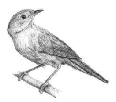


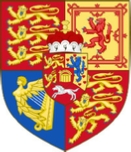
|
1803 |
The United States buys the vast territory of Louisiana from Napoleon of France for three cents an acre. The “Louisiana Purchase” virtually doubles the size of the new nation.
Arthur Wellesley, the
future Duke of Wellington, takes part in the Second Anglo-
The Scottish engineer Thomas Telford begins the construction of the Caledonian Canal. This and his Menai suspension bridge, begun in 1819, are in use by the 1820s.
|
|
1804 |
Following an attempt on his life, Napoleon becomes Emperor of the French and embarks on a campaign of conquest. By the Treaty of Tilsit in 1807, he controls most of Europe.
The great German composer Ludwig van Beethoven produces his Eroica Symphony, the first in a masterful series of symphonies, concertos, sonatas, and chamber music
An automated loom using a
punched-
War breaks out between
Persia (Iran) and Russia following the Russian take-
Karageorge, a Serbian guerrilla fighter, leads his people against their Turkish masters. A ruthless but inspiring leader, his bid for independence was finally crushed in 1813.
The first workable steam
carriage on rails is invented by the English engineer Richard Trevithick. This is made possible by his improvement of
Watt’s low-
The German scientist Alexander von Humboldt and the French botanist Aimé Bonpland, return to
Paris after a five- |
|
1805 |
After defeating the
Austrians at the Battle
of Ulm, Napoleon marches into Vienna and
then conclusively crushes a combined Austro-
|
|
1806 |
French forces under Napoleon enter Warsaw and Berlin after inflicting a crushing defeat on the Prussians and Saxons at the Battles of Jena and Auerstadt.
Napoleon steps up his war against Britain. His Berlin Decree sets up a Continental System aimed at closing all European ports to British imports and bringing Britain to its knees.
The first overland expedition to cross the United States, led by Meriwether Lewis and William Clark, returns to St. Louis, Missouri, after three gruelling years of exploration.
|
|
1807 |
Due to the work of William Wilberforce and others, Britain outlaws the Slave Trade. Many years are to pass, however, before a complete ban is imposed by Britain and other nations.
Napoleon defeats a
Russian-
The Portuguese reject the Continental System. After the secret Treaty of Fontainebleau between France and Spain, Portugal is attacked and partitioned between the two powers.
The English poet William Wordsworth, who, in 1798 (G3b) had collaborated with his fellow poet Samuel Taylor Coleridge in Lyrical Ballads, publishes his own collection of Poems.
The German philosopher Georg Hegel writes his first major work Phenomenology of Mind. This and his later writings make him the most influential thinker of the century.
Tales from Shakespeare, the work of English essayist Charles Lamb and his sister Mary, are very successful. Later, his Essays of Elia, begun in 1820 (G4), ensures his lasting fame.
The Ashanti Empire of West Africa conquers the Fanti people and reaches the height of its power. However, the coming of the British leads to war, the first breaking out in 1873 (Vb).
|
|
1808 |
British troops land in Portugal to assist the Portuguese and Spanish in their revolt against French occupation. Napoleon moves in more troops and the Peninsular War begins.
The German man of letters, Johann Wolfgang Goethe produces part one of his famous masterpiece Faust. A drama of immense depth, the final part is not completed until 1831.
|
|
1809 |
Sir John Moore, the British commander in Portugal, retreats from central Spain and is killed at the Battle of Corunna. The British army holds off the French and escapes by sea.
The Austrians, re-
The German mathematician Carl Gauss publishes his Theoria Motus Corporum Coelestium in which he sets out a quick, accurate method for calculating the orbit of an asteroid.
|
|
1810 |
In his Organon of Rational Healing the German physician Samuel Hahnemann introduces the science of homoeopathy, a medical system based on the idea that like cures like. XXXXXXXXXXXXXXXXXXXXXXXXXXXXXXXXXXXXXXXXXXXXXXXXXX In South America, the Spanish colonies of Argentina and Paraguay start their fight for independence, as does Chile under its leader Bernardo O'Higgins. All succeed by 1818.
|
|
1811 |
After many years of mental disorder, the British King, George III, finally loses his reason and has to be replaced. His eldest son George, the Prince of Wales, becomes Prince Regent.
Following victories at Oporto and Talavera, the British drive the French out of Portugal. Later successes at Salamanca and Vitoria force Napoleon’s army to leave Spain by 1813.
The Luddites, organised bands of unemployed workers, destroy machines throughout the north of England to protest against the suffering caused by the decline of cottage industries.
Muhammad Ali massacres the ruling Mamlukes and becomes undisputed leader of Egypt. He begins a policy of expansion, invading Arabia and attacking the Sudan in 1820 (G4).
The English architect John Nash
begins work on Regent’s Park and Regent Street. He designed
many famous landmarks in London in the neo-
|
|
1812 |
The United States of America, exasperated by British insistence on the right to search neutral shipping, declares war on Britain. The War of 1812 lasts for close on three years.
Napoleon attacks Russia and reaches the capital, but with the coming of winter he is forced to make his Retreat from Moscow. Over 350,000 men die or are taken prisoner en route.
The ruins of the ancient city of Petra, in today’s Jordan, and the ancient Egyptian temples at Abu Simbel are rediscovered by the Swiss explorer Johann Ludwig Burckhardt.
The English romantic poet
George Gordon Byron gains fame with his verse-
The German brothers Jacob and Wilhelm Grimm publish their first collection of Fairy Tales. Including Hansel & Gretel and Sleeping Beauty, these stories became very popular. |
|
1813 |
A combined British, Spanish and Portuguese army, commanded by General Wellington, defeats the French at the Battle of Vitoria and brings to an end the Peninsular War.
Following Napoleon’s disastrous retreat from Moscow, Austria, Prussia, Russia and Sweden join forces and, severely defeating the French at the Battle of Leipzig, move on France.
The Treaty of Gulistan ends the war between Russia and Iran, begun in 1804. Russia gains land in the Caucasus, the vast area which lies between the Black and Caspian Seas.
The English philanthropist Elizabeth Fry visits Newgate Prison, London for the first time. From this year dates her long struggle to improve conditions for women prisoners.
The English novelist Jane Austen publishes her famous novel, Pride and Prejudice. The daughter of a country parson, she wrote six novels, including Mansfield Park and Emma.
One of England’s greatest artists, Joseph Mallord Turner, paints his landscape Frosty Morning, a work which may be regarded as the climax to his early watercolour paintings.
The brilliant Genoan violinist Nicolò Paganini begins his triumphant tour of Italy. Later, in 1828, he visits towns and cities throughout northern Europe, gaining both fame and fortune.
|
|
1814 |
By the Treaty of Kiel, Denmark
cedes Norway to Sweden. Under Charles John, Norway achieves
the right to self-
Allied forces march on France and enter Paris. Napoleon abdicates and is sent to the island of Elba. The Bourbons are restored under Louis XVIII, and the Congress of Vienna meets.
The Spanish artist Francisco de Goya paints The Third of May, 1808, a work which depicts the cruelty of war. His paintings and engravings covered all aspects of Spanish life.
The first successful steam locomotive, designed by the English engineer George Stephenson is used to haul coal near his home town of Newcastle. He opens the first railway line, from Stockton to Darlington, in 1825 (G4).
Pope
Pius VII, returning to Rome after five
years of captivity, restores the Jesuit Order, regains control
of the papal states, and does much to re-
Waverley, written by the Scottish Romantic poet and novelist Sir Walter Scott, begins a series of historical novels which includes Rob Roy, Ivanhoe, and Quentin Durward. |
|
1815 |
The Congress of Vienna concludes the peace settlement just a few days before the Battle of Waterloo. It also sets up a Congress System to ensure that its terms are maintained.
Napoleon, having escaped from Elba, is defeated at the Battle of Waterloo by an allied army commanded by the Duke of Wellington and a Prussian force under General Blücher.
The English chemist Humphry Davy invents the miners’ safety lamp. Earlier he discovers a number of metallic elements, using the process of electrolysis for the first time.
The English geologist William Smith publishes the first geological map. Covering England, Wales and part of Scotland, this proves a landmark in the study of the earth’s rock strata.
|
|
1816 |
The Italian composer Gioacchino Rossini takes just 16 days to write The Barber of Seville, his famous comic opera based on the satire by the French writer Beaumarchais.
The German writer Ernst Hoffmann produces his Fantasy Pieces, a set of weird and fanciful stories which the French composer Offenbach later uses in his opera Tales of Hoffmann.
|
|
1817 |
The English economist David Ricardo publishes his influential work, Principles of Political Economy and Taxation. A friend of Bentham and Malthus, he also worked with James Mill.
King Shaka founds the Zulu
Empire and, having built an efficient
army, begins a reign of terror in south-
|
|
1818 |
The South American “Liberator” Simon Bolivar gains independence for Colombia and, as we shall see (1824 G4), goes on to overthrow Spanish rule in Venezuela, Ecuador and Peru. XXXXXXXXXXXXXXXXXXXXXXXXXXXXXXXXXXXXXXXXXXXXXXXXXXXXXXXXXXXXXX The French artist Théodore Géricault paints his The Raft of the Medusa, a ghastly scene of suffering and endurance which marks the true beginning of French romanticism in art.
The Third Anglo-
|
|
1819 |
Due largely to the
endeavours of Thomas
Stamford Raffles, an administrator in
the East India Company, a British colony is founded on the
island of Singapore in south-
In Manchester, England, cavalry attack a meeting held in support of parliamentary reform. Eleven people are killed. The incident becomes known as the Peterloo Massacre.
The English romantic poet John Keats writes Ode to a Nightingale, one of his famous series of Odes. Some of his finest work is produced this year. He died two years later, aged 26.
The English poet Percy Bysshe Shelley writes Prometheus Unbound, one of his finest poems. A friend of Byron, Keats, and Hunt, his work shows a great gift for lyric poetry. |
|
1820 |
After ten years of severe mental illness, and a reign of 59 years, George III dies and is succeeded by his profligate son, the Prince Regent, as George IV.
|






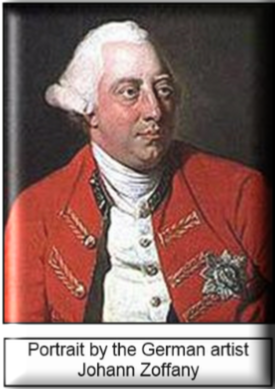 n
was one of the longest in British history, and certainly one of the
most eventful. The first twenty years
n
was one of the longest in British history, and certainly one of the
most eventful. The first twenty years 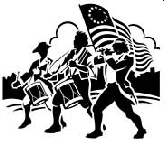 It
was by such means that he was able to play such a significant role in
the dispute with the American colonists. He ignored their protests and
opposed compromise at every step, fully endorsing, if he did not
initiate, the punitive measures which eventually led to their
rebellion. It is hardly surprising that he should regard the eventual
victory of the colonists as a personal failure and even contemplate
abdication. And this attempt to reassert royal authority came to the
fore as late as 1801 when he forced his able minister William Pitt to
resign rather than agree to Catholic emancipation, a move which Pitt
rightly saw as a necessary corollary to the union with Ireland and the
hope of putting an end to rebellion. It was an opportunity missed, and
one which would have gone a long way to ease the problems which had
bedevilled Anglo-
It
was by such means that he was able to play such a significant role in
the dispute with the American colonists. He ignored their protests and
opposed compromise at every step, fully endorsing, if he did not
initiate, the punitive measures which eventually led to their
rebellion. It is hardly surprising that he should regard the eventual
victory of the colonists as a personal failure and even contemplate
abdication. And this attempt to reassert royal authority came to the
fore as late as 1801 when he forced his able minister William Pitt to
resign rather than agree to Catholic emancipation, a move which Pitt
rightly saw as a necessary corollary to the union with Ireland and the
hope of putting an end to rebellion. It was an opportunity missed, and
one which would have gone a long way to ease the problems which had
bedevilled Anglo- motives
were always well-
motives
were always well-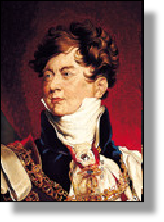 It
was during these troubled, twilight years of his life that his eldest
son, whom he despised so much, became
It
was during these troubled, twilight years of his life that his eldest
son, whom he despised so much, became  Ironically enough, his “reign” was marked by a
triumphant end to the Napoleonic Wars. Napoleon, his army devastated
by its retreat from Moscow in 1812, was overwhelmed at the Battle of
the Nations in 1813, and then, following his return from Elba, was
finally defeated at the Battle of Waterloo. The British general the
Duke of Wellington led the Allies to victory following his success in
the Peninsular War. The Congress of Vienna confirmed the rise of
Russia, reinstated Austria and Prussia as great powers, and recognised
Great Britain as possessing the world’s greatest sea power and
colonial empire.
Ironically enough, his “reign” was marked by a
triumphant end to the Napoleonic Wars. Napoleon, his army devastated
by its retreat from Moscow in 1812, was overwhelmed at the Battle of
the Nations in 1813, and then, following his return from Elba, was
finally defeated at the Battle of Waterloo. The British general the
Duke of Wellington led the Allies to victory following his success in
the Peninsular War. The Congress of Vienna confirmed the rise of
Russia, reinstated Austria and Prussia as great powers, and recognised
Great Britain as possessing the world’s greatest sea power and
colonial empire.  Fighting
is resumed between Britain and France following the failure of
both countries to adhere to the Treaty of Amiens of
Fighting
is resumed between Britain and France following the failure of
both countries to adhere to the Treaty of Amiens of 
 The
British navy wins a resounding victory over the combined
fleets of France and Spain at the
The
British navy wins a resounding victory over the combined
fleets of France and Spain at the  The
The
 The
English chemist and physicist
The
English chemist and physicist  The
French naturalist
The
French naturalist  The
last of a collection of ancient Greek sculptures from the
Parthenon in Athens is brought to England by the Earl of
Elgin. The
The
last of a collection of ancient Greek sculptures from the
Parthenon in Athens is brought to England by the Earl of
Elgin. The 
 The
Bernese writer
The
Bernese writer 
 In
a naïve attempt to outlaw war,
In
a naïve attempt to outlaw war, 